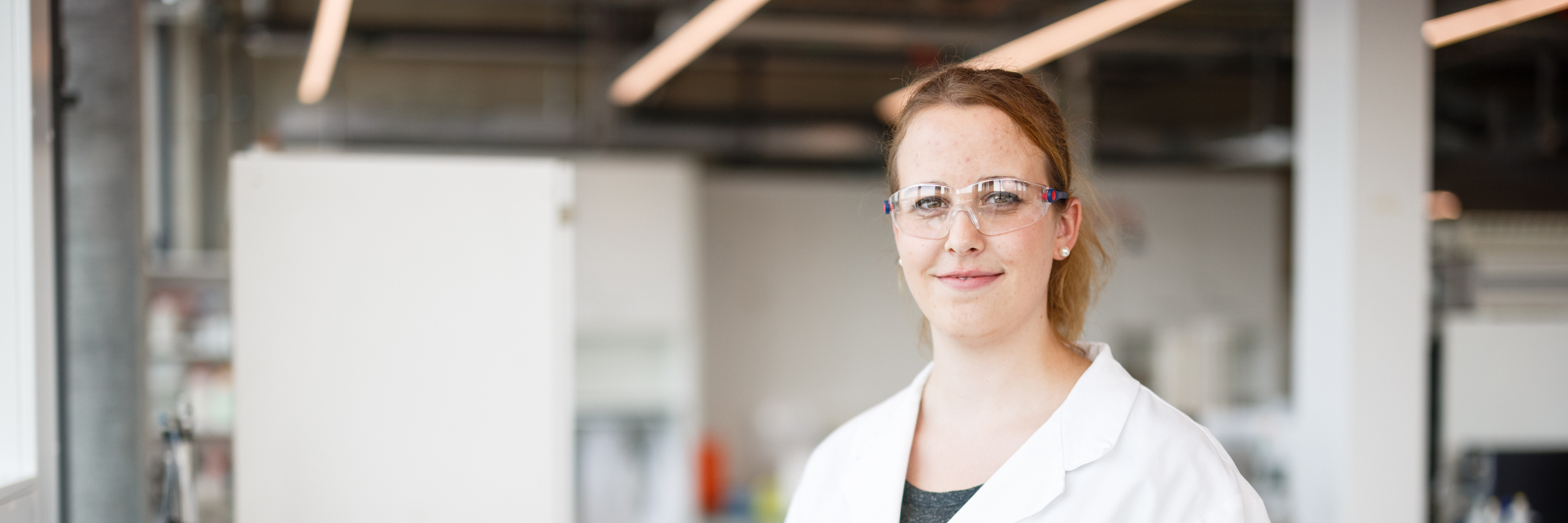Pharmatechnology
Become an expert in Pharmatechnology
Key data
- Degree
- Master of Science in Life Sciences
- Studying type
- Double-Degree with foreign University optional
- ECTS points
- 90
- Studying mode
- Full-time and part-time
- School days
- Monday to Friday
- Teaching language
- English
- Place
- Muttenz (Basel-Land)
- Stay abroad
- optional
- Application fee
- CHF 200
The deadline for applications for the autumn semester is 30 April of the relevant year and 30 November for the spring semester.
Mobile navi goes here!
Pharmatechnology – Career Opportunities
The specialisation in Pharmatechnology spans the entire range from early pharmaceutical profiling to formulation development and manufacturing. Graduates will be optimally prepared for jobs in the pharmaceutical/biomedical industry or related industries such as nutraceuticals. Apart from jobs offered by global players such as Roche or Novartis, there are further opportunities in smaller pharmaceutical firms or contract research/manufacturing organizations. Moreover, graduates are also attractive to companies in pharmaceutical engineering, excipients, production machines, consultancy, as well as being qualified for work in a regulatory agency or academia. The growth in the pharmaceutical and biomedical sectors is expected to continue in future due to the rising health challenges of chronic and infectious diseases, where Pharmatechnology will continue to play a critical role in the value chain of producing efficacious and safe drug products that meet highest quality standards.
Pharmatechnology – Curriculum
The curriculum offers modules on drug formulation and delivery, and a separate module on the formulation of biologicals. The modern trend of continuous production is addressed by an entire module, while another covers pharmaceutical production facilities. Further modules can be chosen from related specializations, in particular Analytical Chemistry, Applied Cell Biology, Biotechnology and Bioanalytics. The broad range of specialist and generic modules allows each student to create an individually tailored study programme.
Students may also take an additional semester at a foreign partner university, allowing them to gain an additional degree.
The MSc concludes with an eight month thesis, which can take place in a research group at the University or at an industrial partner. The practical experience gained during the thesis is an important part of the qualification for industrial work or a continuation of research for those graduates who prefer to pursue doctoral studies.
Pharmatechnology – Entry Requirements
The MSc in Life Sciences – Pharmatechnology is especially suited for students with a BSc degree in Pharmatechnology, Pharmacy, Chemical Engineering, Biotechnology or related fields.
Graduates with an excellent Bachelor's degree are admitted directly if they:
- hold a Bachelor's degree in a related technical field from a university of applied sciences with a mark of A, B or ≥ 5 or an equivalent mark (≥ good)
- or demonstrate an equivalent background (BSc) and practical experience
- and have excellent English skills.
Prospective students who meet most but not all of the entry requirements are invited to an interview.


